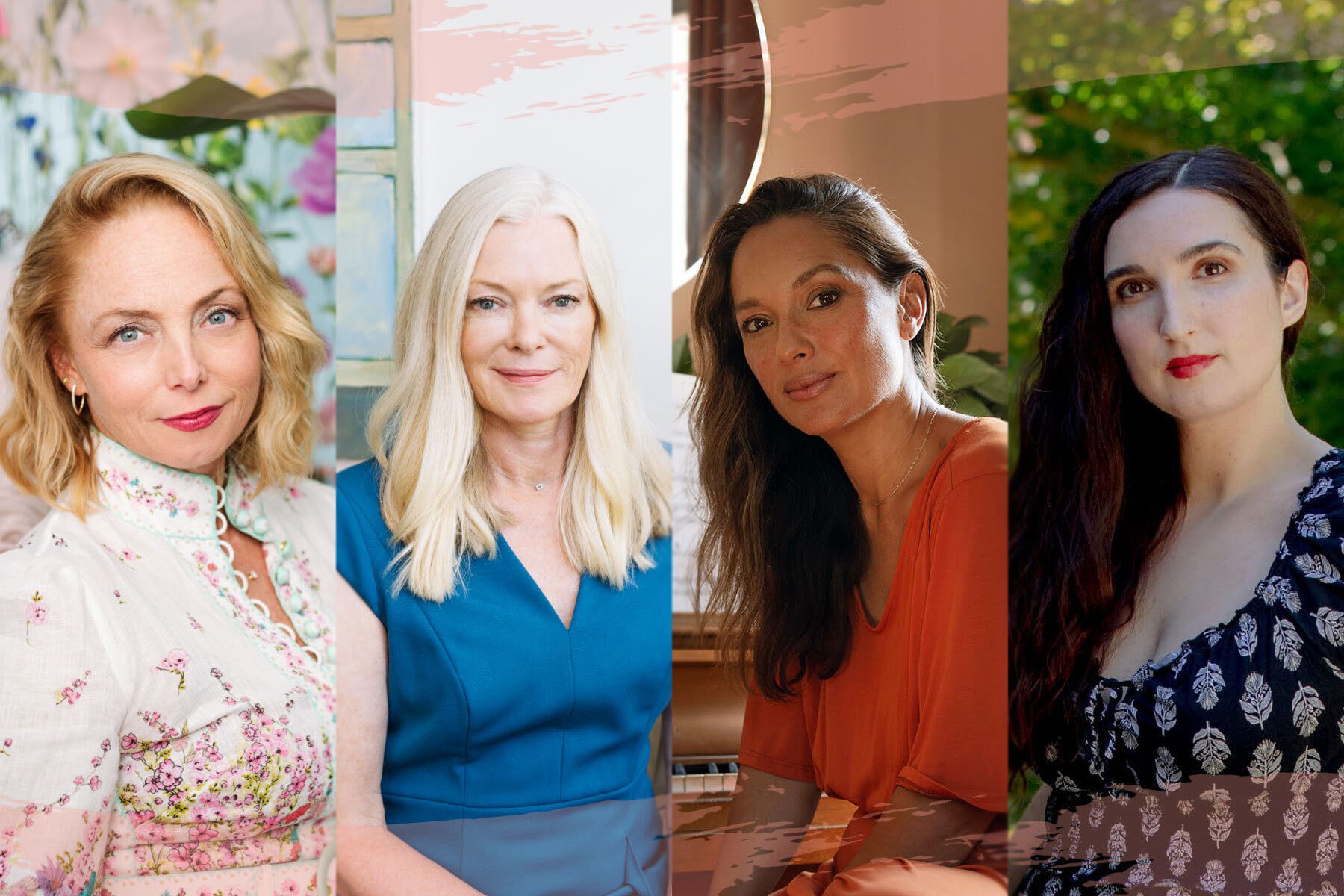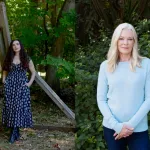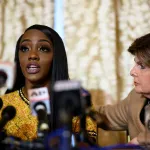In October 2017, sexual misconduct allegations against Hollywood producer and film industry titan Harvey Weinstein dominated headlines.
New York Times reporters Jodi Kantor and Megan Twohey detailed decades of Weinstein’s alleged sexual harassment and abuse, silenced by payoffs and nondisclosure agreements. Ronan Farrow’s reporting for The New Yorker spotlighted 13 additional firsthand accounts of alleged sexual violence, documenting a seemingly well-established pattern of the film mogul isolating women in the industry and allegedly violating them, all while those around him at the companies he helmed enabled, facilitated and covered it up.
While the aftershocks of this reporting rippled through Hollywood, its impact quickly expanded far outside the industry. A week after the initial wave of reporting published, actor Alyssa Milano, who alleged she had been assaulted by Weinstein, tweeted: “If you’ve been sexually harassed or assaulted write ‘me too’ as a reply to this tweet.” Five years later, #MeToo — first coined by activist Tarana Burke in 2006 as a way for Black women and girls to share their stories of sexual trauma — has become a rallying cry worldwide. Milano’s tweet still gets replies today.
So much of the reporting that led to charges being brought against Weinstein relied on women stepping forward to share some of their darkest moments. In seemingly countless interviews, alleged Weinstein survivors told their stories, paving the way for others to find their voices in Hollywood and beyond.
But their names and individual identities are still so often erased. As more and more people tell the story of what happened with Weinstein, the individual people — their lives, their experiences — can feel diminished. Survivors told The 19th that often, articles, TV segments, books and movies about Weinstein are done without anyone reaching out to them. The women who came forward one by one in 2017 to end the code of silence still often feel silenced themselves.
As Weinstein’s second trial began in Los Angeles County this week, the “Silence Breakers” are once again living through a barrage of coverage of their alleged perpetrator. Weinstein faces trial in Los Angeles for 11 charges — four counts of rape and seven counts of sexual assault — that carry a maximum sentence of 140 years. Though Weinstein was convicted of first- and third-degree rape as part of his first New York trial in 2020, he was granted an appeal last month and will have a new trial in 2023.
Five years after so many women shared their stories with the world, four of them— Caitlin Dulany, Louisette Geiss, Larissa Gomes and Sarah Ann Masse, who were all involved in a civil class action suit filed against Weinstein — spoke to The 19th about building identities separate from the often nameless “Weinstein survivors.” These women, regularly denied the chance to show their full selves and tell their own stories, do so here in their own words, navigating what it means to find safety and self in the face of widespread public attention, and criticism, five years after #MeToo went viral.
Today, this headline is only about them.

Louisette Geiss
Geiss met Weinstein at the 2008 Sundance Film Festival to pitch him a screenplay she wrote.
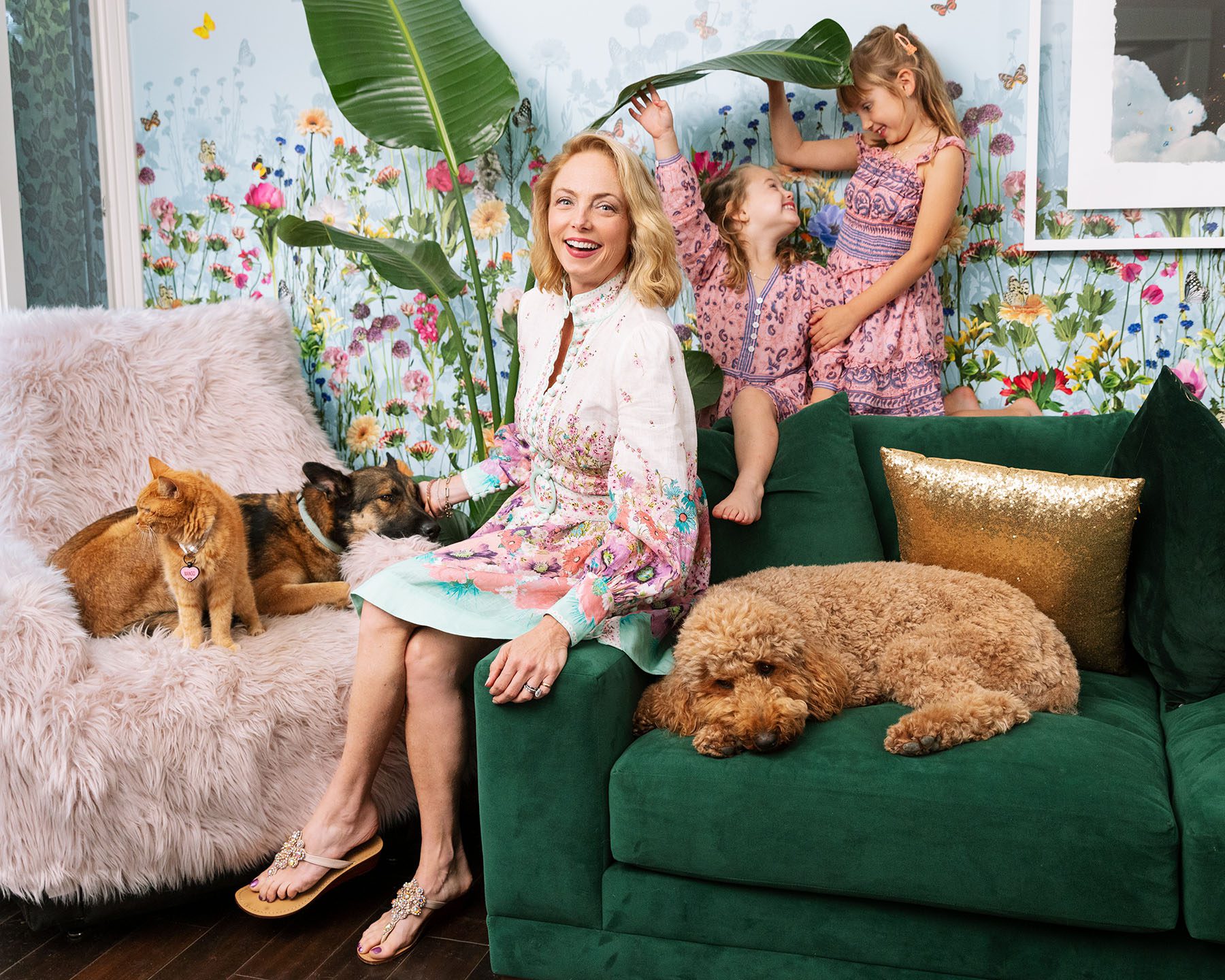
When I first came forward with my story, my daughter was only six weeks old. Children have an excellent way of showing you how time passes.
The last thing you want to do six weeks after giving birth is get yourself into something super stressful — facing your demons, your abuse. I don’t know if it was because I was a mom and I gave birth without an epidural — and my God, if you can get through that? Well, I also got through the Weinstein case over four and a half years with no epidural.
Life today is pretty good. I work in real estate. I have two stepboys, who are 18 and 16, and I have 7-year-old and 5-year-old little girls. Life is full, that’s hella sure. I’m also a Type 1 diabetic; I got it after I had my daughter. I track my sugar, and stress plays a big role. My numbers in the past year have been a lot better. I think a lot of that has to do with not carrying the albatross of Weinstein on my back.
Louisette GeissWhen you don’t get included in telling your own story, you feel abused again.
I liken the experience of seeing change happen to a script or a book, and right now we’re on page 30 of 130 pages. We’re not even halfway in. That’s why it is so important — and trust me, I don’t want to keep talking about this — but it’s imperative that we keep raising awareness.
I wrote a musical called “The Right Girl,” about taking down predators. Diane Warren did the music, and we are slated to do an off-Broadway run next spring. We brought in 25 women who had stories from Weinstein to R. Kelly and more — it was a big smattering of women. They came and sat for four hours and talked. Those women all share in the royalty pool for when my show goes up, and hopefully it is really successful.
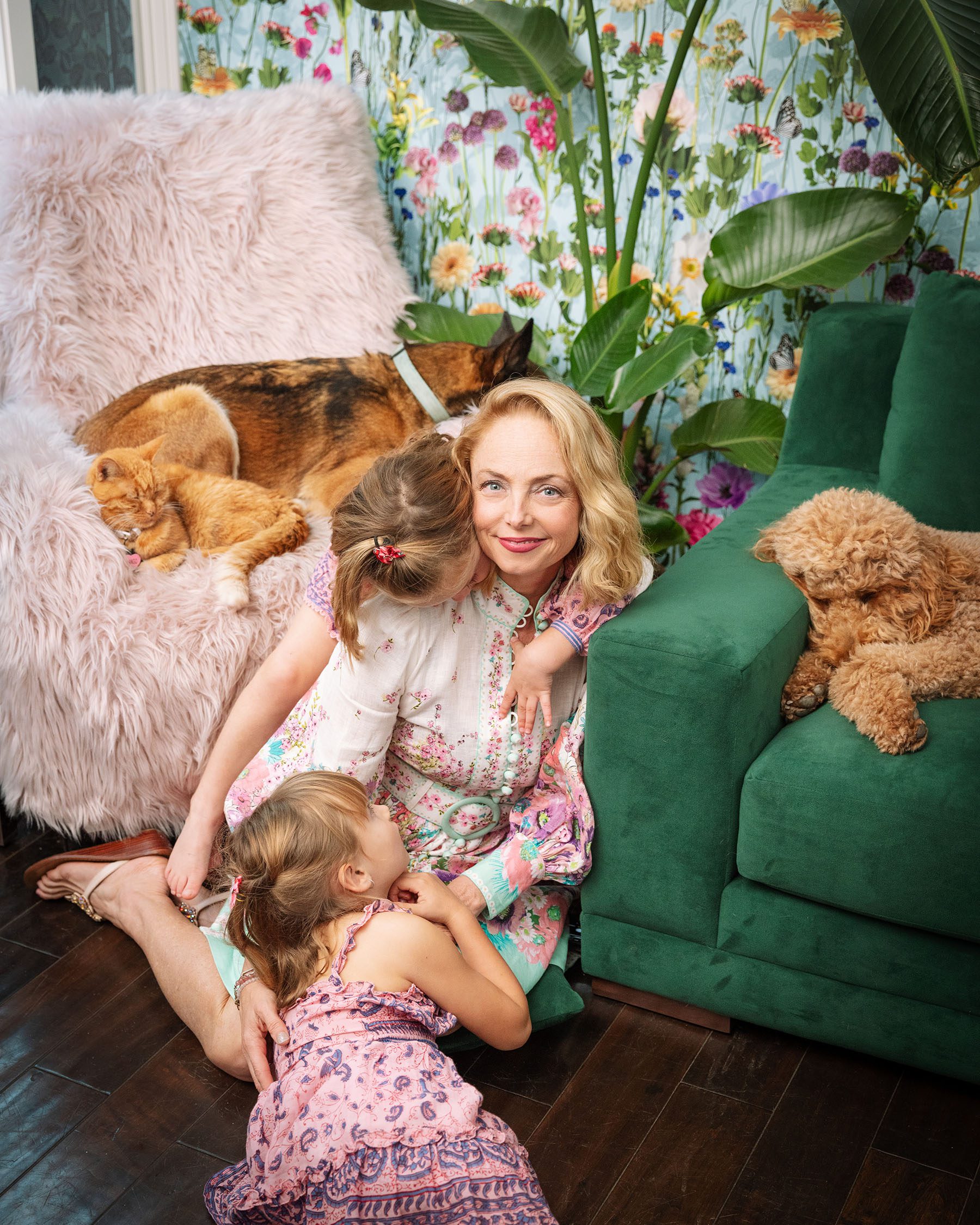
I could have just looked up all of their stories, but I didn’t. What I find to be so egregious is taking victims’ stories, telling them, and then not letting them participate or giving back to them in some way if you are profiting from it. I find it so gross.
When you don’t get included in telling your own story, you feel abused again. I want to say, “Great thanks for telling our story — and now you’re getting a load of cash and you’re running around and everyone is patting you on the back and you didn’t even loop us in.” I don’t even understand it. You don’t pick up the phone? What the hell? What is wrong with you?
I did my musical, and I didn’t have to pick up the phone because I’m the damn victim. But it was beneficial for me in a human way to give back to all those women who came forward and sacrificed. There was no fun in this party. I hate when people say that we’re doing this all for fame. When they say that, I say, “Fuck you.”
We have a song in my musical called “You Fucked with the Wrong Girl.” The day Harvey got his 23-year prison sentence, I had to leave a rehearsal to go to the courthouse to speak. I said on the court steps, “Harvey, you messed with the wrong women.” That was my ode to my musical.

Larissa Gomes
Gomes met Weinstein in 2000 on the set of a Miramax-produced film in Toronto. The film studio was founded and led by Weinstein.
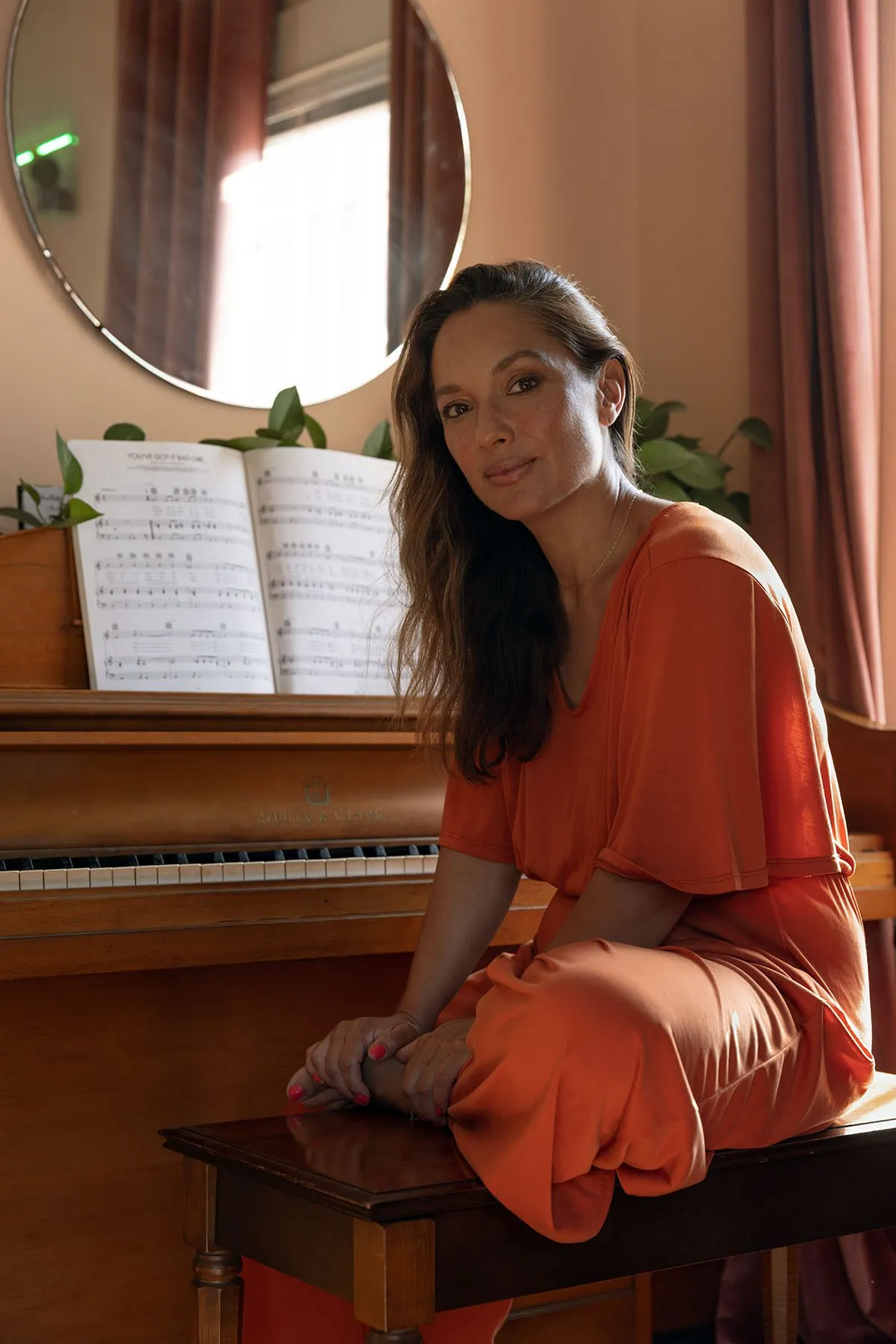
It wasn’t an easy decision for any of us who came forward about Weinstein to speak up. We had lived with it for so long, had buried it and accepted it. It made me feel very vulnerable, but I felt very empowered at the same time by the women that I met in picking up that baton. What is authentically important to me are the friendships I made with the other women. I rode this wave with them. It gave me the clarity I needed to face all of those uncomfortable things. So many of these women became close friends of mine and still are.
What happened to me is something that sort of anchored me, but speaking out about it gave me the ability to pull that anchor out and let it go, to let me sail onwards.
I have been really involved with the Los Angeles local board of the Screen Actors Guild and their new sexual harassment prevention committee. It made me feel like everything I put out there could make a difference in the industry I work in and continue to be a part of. That’s something I take a lot of pride in. It’s also given me a resource where I’m able to utilize my ideas for the things I think are currently missing in the system or where I think we could affect some real change.
Going through this kind of thing, especially in your work environment, is really hard on your mental health. We talk a lot about what happens if you get injured on set physically, but what if you get injured emotionally? It feels often that the onus is on the survivor to figure it all out, from the reporting to the counseling. The trauma can be devastating and can affect a performer’s ability not just in the moment at the job they are currently working, but for years to come. Depression, anxiety, there are just so many manifestations of how this takes hold.
What happened to me is something that sort of anchored me, but speaking out about it gave me the ability to pull that anchor out and let it go, to let me sail onwards.
Larissa Gomes
I work as a writer now. I do a lot of contract writing — outlines and treatments for films, articles, anything I can take on freelance. I’m working on a lot of personal projects as a writer — TV pilots and feature film scripts. One is about survivors. It is particularly grueling to work on, but also really rewarding. Whether it goes somewhere or not, the joy is in the process of doing it and working on it. But I would like to see it happen.
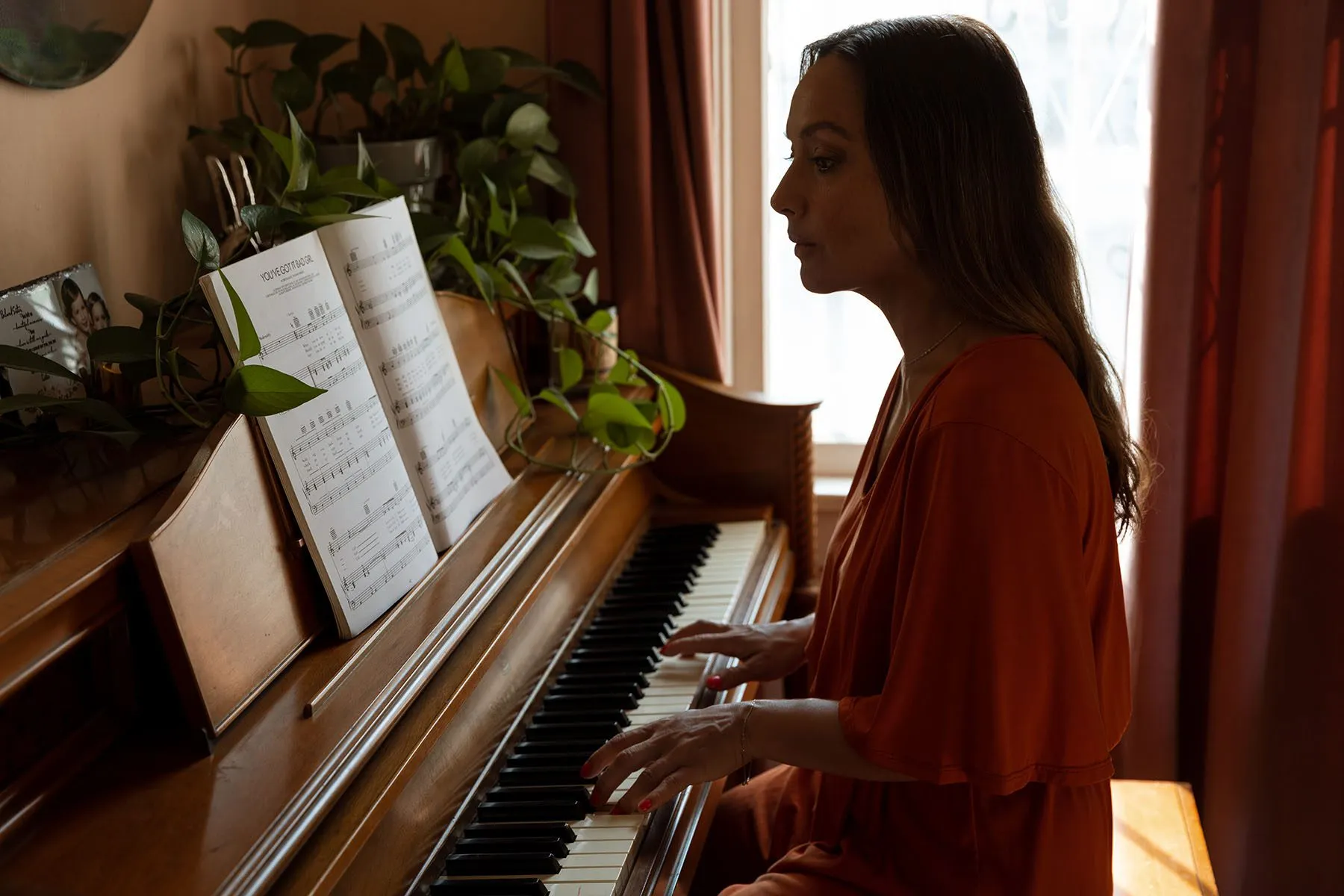
I’m a single mom to a 7-year-old, and when this all came out he was just a toddler. It all happened just at the tail end of my divorce being finalized. It was a painfully long custody battle. It was in the midst of this that the Weinstein story first broke, and a friend of mine called me and said, “Maybe you should tell your story.”
I was very resistant. It felt like all the news was invoking so many things I had buried for so long. But I was also starting to feel a little more confident. So I just said, “Yes, this does feel like something I need to do.” I had no idea at that point the impact that this moment had with all the women who came to speak out.
There was a photo taken for The Hollywood Reporter in 2017 for an article they did on a bunch of us who came forward. A really good friend of mine contacted the photographer and bought the photo off of her and had it framed for me. My friend said to me when he gave it to me, “What you all have done is really important, and your son should know about it. He should grow up knowing about it and seeing that image every day, and when he asks you about it, you should tell him.” My son is always asking about it. And when he has asked, I have talked to him in a way he could understand. I told him, “A lot of women stood up to a bully.”

Sarah Ann Masse
Masse worked as a nanny while she built a career as an actor and writer. She met Weinstein in 2008 when she went to his home in Connecticut to interview for a position caring for his children.
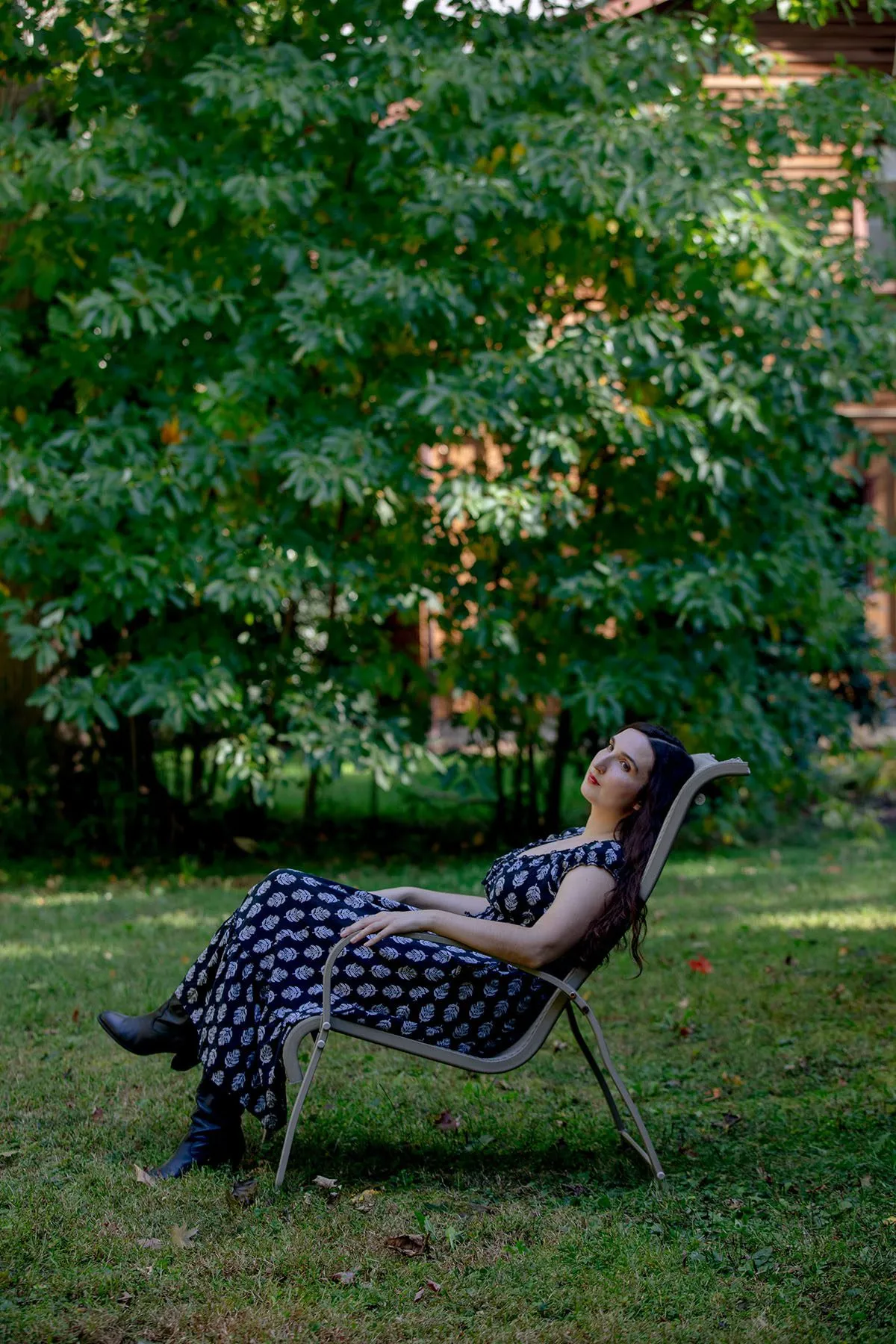
I think people have a hard time swallowing that I’m still dealing with this. They say, “Well, Harvey’s in prison now!” It’s an unvirtuous circle. It’s not like you just heal and push through the trauma and then, bam! Everything is good now. It’s not just that one moment of abuse, but how it impacts everything for years down the line.
The struggles survivors go through get dehumanized, especially when it is a Hollywood story involving a well-known person. I found myself thinking a lot during everything that was going on with Johnny Depp and Amber Heard. Here you had this very famous actor who was very beloved, and a woman who was less well known and less well liked, and it turned into this popularity contest. This woman was dehumanized because she wasn’t seen as likable. Every survivor carries that in their own mind: “Maybe that’s how I will be treated if I speak up.”
Harvey being in prison is the exception and not the rule, and it still took 30 years of stories and litigation and clever DAs and people who knew how to tell these stories in a compelling way to a judge and jury — and now there’s going to be an appeal. We saw this happen with Bill Cosby.
I started an initiative called #HireSurvivorsHollywood to create a safer and more equitable community for everyone in the industry. It feels good to know that I’ve been able to take some of these hard-won, painful lessons I should have never had to go through and make things better and keep people from having to go through these things.
I don’t want to only be “a Weinstein survivor” in people’s minds. I never intended for the most painful and intimate parts of my life to be the things people most know me for.
Sarah Ann Masse
People are excited to work with us at #HireSurvivorsHollywood. People want to make projects that are more safe and accessible for survivors. They want survivors to be able to submit and audition. There is an inclination to fix this, but it takes a lot of talking about it to get people to pay attention. But when they do, I think most people do want to put energy into repairing the harm that is the fabric of this industry.
I’m also involved in a musical called “The Right Girl,” and I have really loved getting to work on this. To get this opportunity to be involved with a show that is aiming for Broadway and to hold my own with these incredible, talented folks feels like another part of my life I am getting to reclaim. Louisette’s musical is so entertaining and fun and playful in a weird way, but then it has these gut punches in it. She is actively hiring survivors, doing the work I am asking other folks to do.
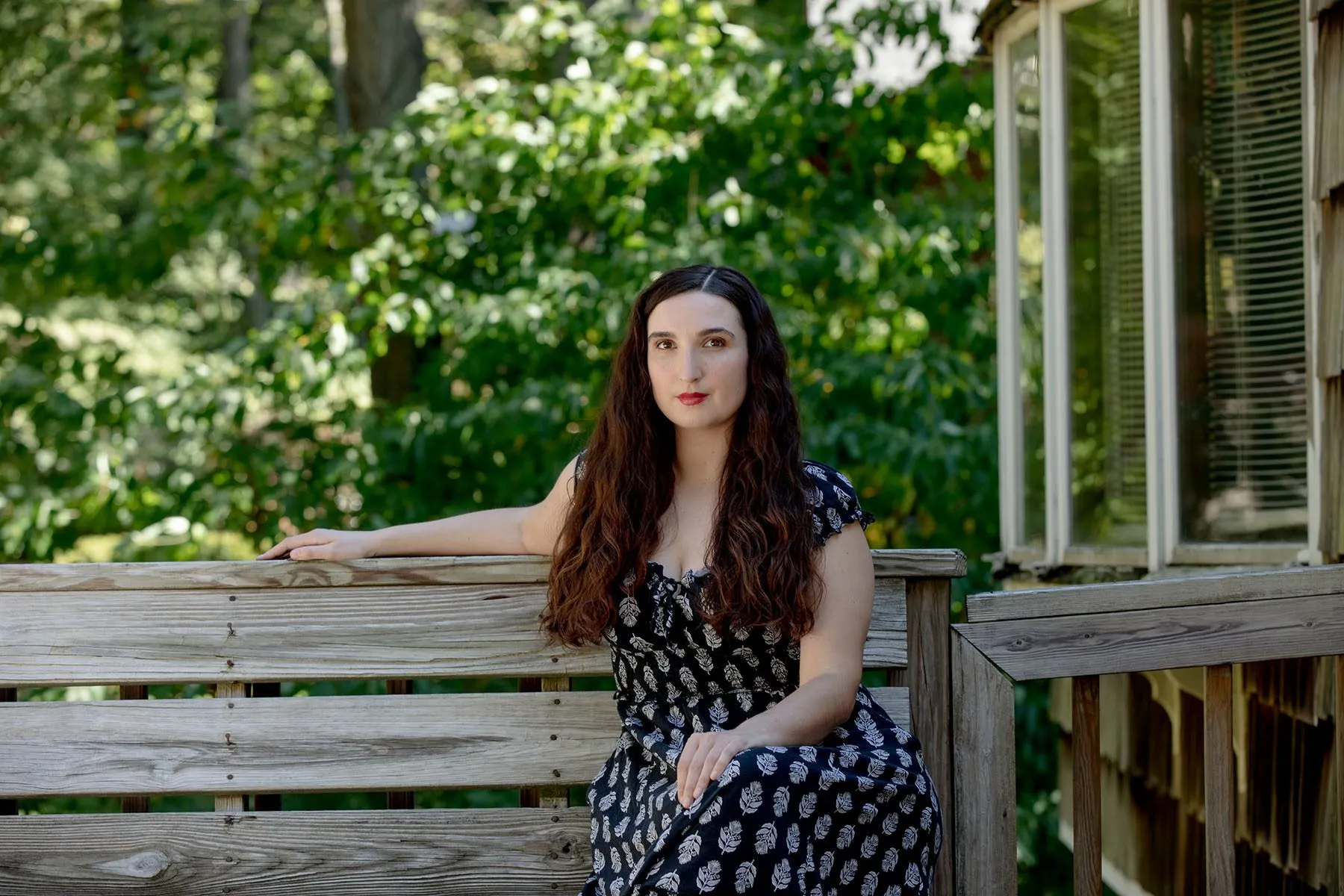
These stories keep getting told about our life, and if you don’t include us, you’re not doing it in the right way. It’s not a bad thing for survivors who have experienced financial harm to earn a living and have jobs and careers. We didn’t come forward about this for the money. We lost money and careers. Insisting that we have our careers back is just saying, “I would like my life back, please, because I have shared about my life to try to help others.”
I don’t want to only be “a Weinstein survivor” in people’s minds. I never intended for the most painful and intimate parts of my life to be the things people most know me for. As someone who has spent a long time trying to create awareness for my work and my talent, it hurts to think that’s not the headline about me. It’s not the comedy sketches I’ve made with millions of views, the scripts I’ve written going around town or my talent as an actor. It’s about him.
If this wasn’t the first thing that comes up when you Google my name, it would be healthier for me. But I saw the chance to own it and I said, “Yes this is a part of me — but not the only part.” I won’t let anyone else take that from me or slow me down. I can’t let this day when he destroyed my life be the story.

Caitlin Dulany
Dulany met Weinstein in 1996 at a screenplay reading at the Miramax office. After seeing Weinstein twice in group social settings, Dulany agreed to go to dinner with him.
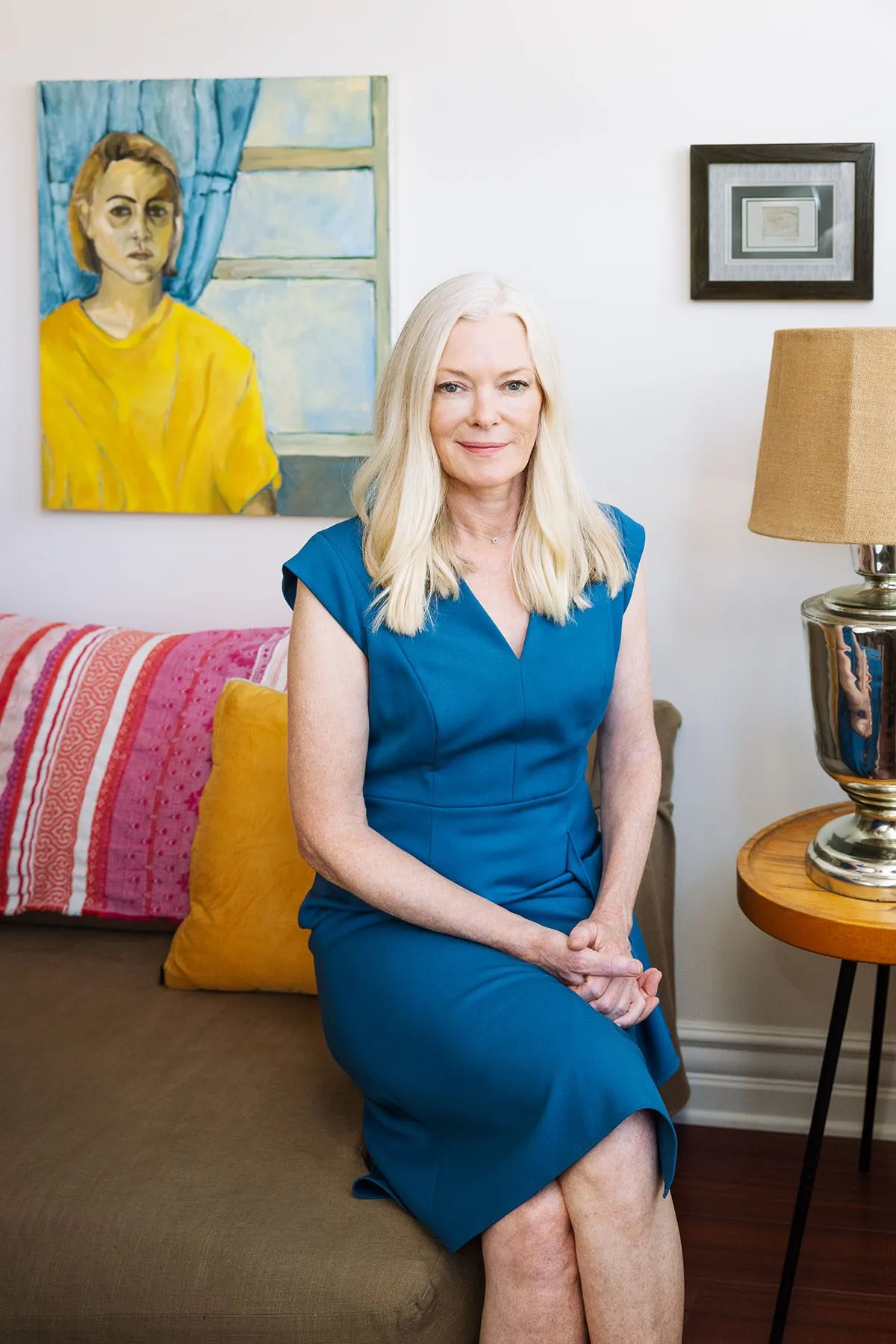
The movement taking off in 2017 and everything that’s happened in the subsequent years, including the trial of Harvey Weinstein in New York, has really just changed my life for the better. Besides loving people and my relationships with my siblings and child and friends, the most important thing that has happened to me in my life is this — and that includes speaking out and giving back. I really am a different person now because of this. I feel like I have personally come full circle and am now having my life be a good life. I’m not hiding things. I feel a lot less fear. I’m able to have good relationships with men like my son.
It is so important for survivors to feel front and center like that. That is the real story. They are the ones that something has happened to.
Caitlin Dulany
Right before, during and after the New York trial, I felt a lot of purpose in continuing to talk and speak out about what happened and these issues. It felt like an important, purposeful and gratifying thing to do — to speak my voice, put it out there, to support other women speaking, to articulate my reactions and feelings and thoughts about this issue in general. It was nice that people wanted to talk about it.
There was this cultural shift, this change we all wanted to see. It was wonderful when people wanted to hear about that and put us front and center during the time of the trial, when the focus could have been on the person accused. It is so important for survivors to feel front and center like that. That is the real story. They are the ones that something has happened to. And they need to be able to heal and seek justice.
I have gotten very involved in my union, the Screen Actors Guild. It just felt really natural to turn back to say, “What can we do to protect the performers and members of this community?” This last election cycle, I ran for a seat on the executive board and won and started working with the union on these issues.
A fellow Los Angeles local board member is my co-chair, and we helped to found the sexual harassment prevention committee for our chapter. Now we have a national one, too. The union’s women’s committee has also gotten really involved in ways of protecting our members. And we’ve made changes — changes in the language in our contracts with producers, and awareness building and education and safety measures on set for performers.
I would have never been elected if I hadn’t gone through this growth. That was a thing I would have never ever have thought about or tried to do. The thought that I could make a difference was a fantastic thing to learn about myself.
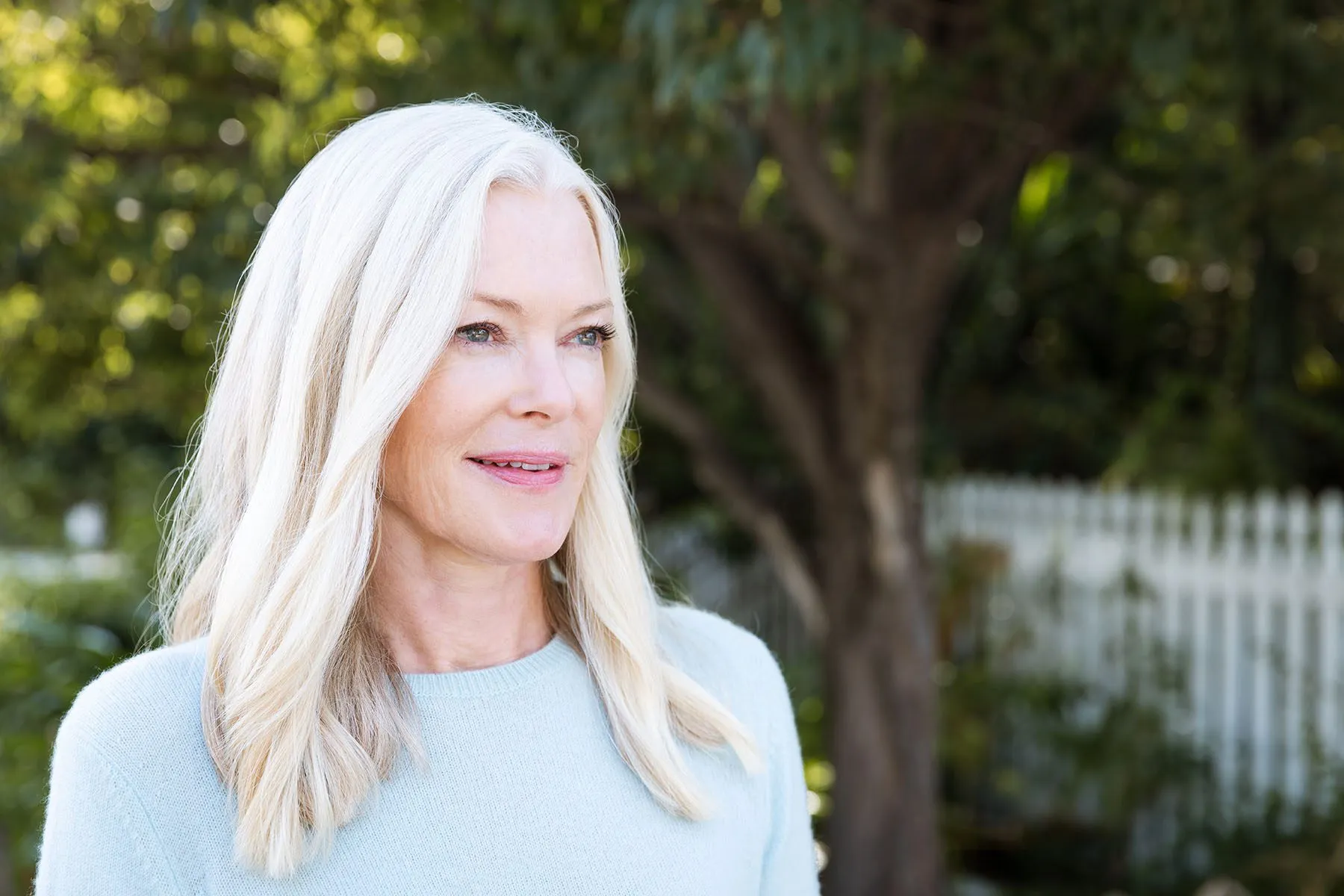
But it took a lot of time and energy and attention. And it wasn’t easy emotionally or psychologically to feel vulnerable, to feel like you are reliving things that really disturb your psyche. You’re doing it because you want to and there is a purpose. But the interviews where I would tell my story again would cause a lot of anxiety. There were some post-traumatic feelings that I needed to tend to. Being with the other women is wonderful, and speaking out is wonderful, but there is also so much sadness and grief.
Tarana Burke started the #MeToo movement in 2006 because she had spent so many years listening to Black and minority communities talk about their experiences with sexual violence — this was a way for victims of sexual violence to connect with one another and to heal and to put some space around what happened to them. It’s taken all these years, step by step, to move things forward.
I am hopeful that we have evolved culturally as a society. But the fact is that the legal system still has a long way to go. I just think about the fact that Bill Cosby is a free man and he won his appeal and that the New York State Court of Appeals has agreed to hear Harvey Weinstein’s appeal — if you think that over 80 women have come forward about this one man and now he’s been granted an appeal.
We’re in a place right now where we are looking towards a legal system that just can’t keep pace with society. It’s time for change. The Los Angeles trial of Harvey Weinstein [has just begun]. Maybe this will finally mark a change in our legal system, or at least be a start. This is a chance to put the focus, blame and accountability on predators and to have the legal system be a more hopeful road for survivors. I will be really devastated if it doesn’t. But I will keep myself in the game, no matter what.
